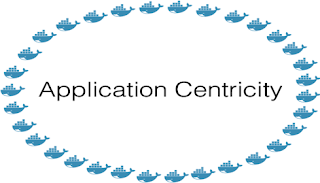HOW SHOULD MANAGEMENT ENGAGE DEVELOPERS?
It was in one of those meetings, a senior leaders from a large company told me, ” You know, when I was a team lead, I had such a good time interacting with the team – I knew exactly what they are working on, how they were working and how I could support them. And I knew exactly how I can make a difference in their life. Today, I have a much bigger organisation under me, but I don’t know exactly what those individual contributors are working on? and no clue on how I can make a small difference to them and hence multiply those small differences to affect change in the company.”
This got me thinking. He was absolutely right, the higher you go, the less you know about the individual contributors, but you have more individual contributors under you!
“The larger your ability to make a difference, the lesser visibility will you have to bring that difference. An irony of life!”
But I believe, you can actually make a big difference to these individual contributors even when a large organisation reports to you, if you engage with them well. Hence this topic.
Below are a few methods that may help – Please feel free to add your thoughts to this list.
1. Speak their Language
It is important for management to speak the language of the individual contributors. To be able to do that, you should have systems in place where you can get important updates on what is happening within the eco-systems without you having to depend a specific layer. Keeping your ear to the ground in this manner, becomes an important channel even to perform “dip-sticks” on some of the important decisions taken.
Some of the systems you need to have in-place are alerts on par-excellence works, these need to be hitting your desk continuously and consistently. These alerts can be on build systems, defect systems, customer feedback systems, operation systems etc. Understanding what is being done on these exceptions will be a very good summary on what is happening on the ground.
2. Practice Servant Leadership
Leadership is about enabling a team to achieve the larger goal. To make this happen, especially in a knowledge eco-system, it is important to help the team feel empowered. Allowing them to make decisions on what needs to be done, given the larger goal set, and removing impediments to help them achieve those goals is essential. This will help teams to come up with the right road blocks that they need to addresse, and the more they come up with solutinos, the better you know what is happening on the ground.
3. Team over Individuals
This has been discussed over and over in the agile world, but this is considerably harder than it looks. It is very easy to get carried away in identifying the one throat to choke, so your responsibility ends with one person on the team, and thus ignores what he does to deliver the overall goal. This moves you farther away from the team, and makes it harder to know what is really happening on the ground.
4. Share Goals
In this eco-system, it is important to hire folks who are better than you. If you have hired folks who are better than you, it makes more sense to ensure they know your goals so they can help you get there swiftly. Only when this is done, they can work upwards to help you understand how they think they can achieve the goals. This helps you to get to know what is going on at the ground level.

Comments